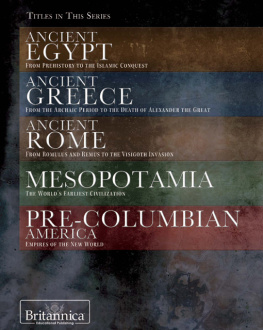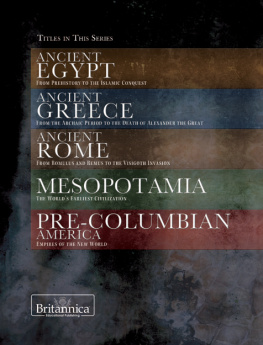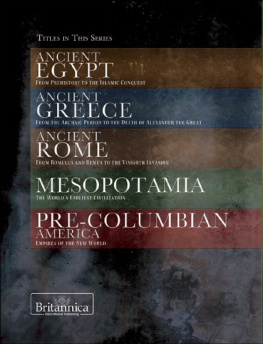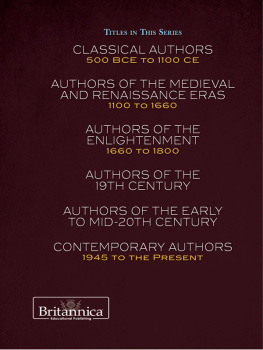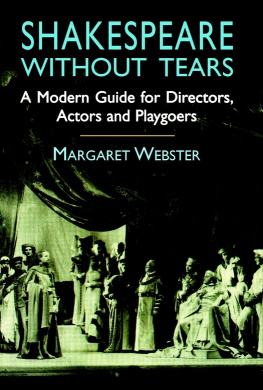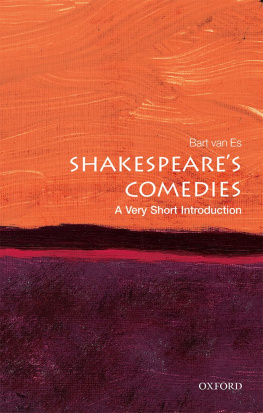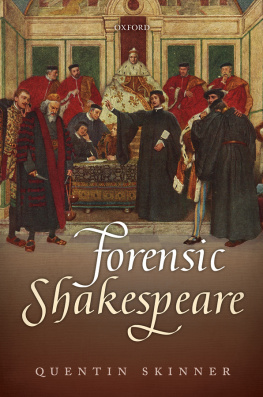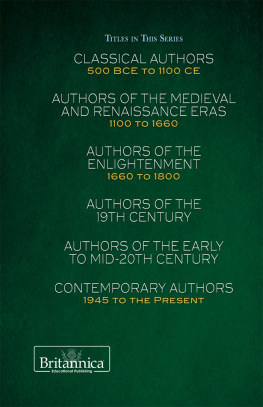Kathleen Kuiper - The Comedies of William Shakespeare
Here you can read online Kathleen Kuiper - The Comedies of William Shakespeare full text of the book (entire story) in english for free. Download pdf and epub, get meaning, cover and reviews about this ebook. year: 2012, publisher: Rosen Education Service, genre: Detective and thriller. Description of the work, (preface) as well as reviews are available. Best literature library LitArk.com created for fans of good reading and offers a wide selection of genres:
Romance novel
Science fiction
Adventure
Detective
Science
History
Home and family
Prose
Art
Politics
Computer
Non-fiction
Religion
Business
Children
Humor
Choose a favorite category and find really read worthwhile books. Enjoy immersion in the world of imagination, feel the emotions of the characters or learn something new for yourself, make an fascinating discovery.
- Book:The Comedies of William Shakespeare
- Author:
- Publisher:Rosen Education Service
- Genre:
- Year:2012
- Rating:3 / 5
- Favourites:Add to favourites
- Your mark:
- 60
- 1
- 2
- 3
- 4
- 5
The Comedies of William Shakespeare: summary, description and annotation
We offer to read an annotation, description, summary or preface (depends on what the author of the book "The Comedies of William Shakespeare" wrote himself). If you haven't found the necessary information about the book — write in the comments, we will try to find it.
The Comedies of William Shakespeare — read online for free the complete book (whole text) full work
Below is the text of the book, divided by pages. System saving the place of the last page read, allows you to conveniently read the book "The Comedies of William Shakespeare" online for free, without having to search again every time where you left off. Put a bookmark, and you can go to the page where you finished reading at any time.
Font size:
Interval:
Bookmark:



Published in 2013 by Britannica Educational Publishing
(a trademark of Encyclopdia Britannica, Inc.)
in association with Rosen Educational Services, LLC
29 East 21st Street, New York, NY 10010.
Copyright 2013 Encyclopdia Britannica, Inc. Britannica, Encyclopdia Britannica, and the Thistle logo are registered trademarks of Encyclopdia Britannica, Inc. All rights reserved.
Rosen Educational Services materials copyright 2013 Rosen Educational Services, LLC.
All rights reserved.
Distributed exclusively by Rosen Educational Services.
For a listing of additional Britannica Educational Publishing titles, call toll free (800) 237-9932.
First Edition
Britannica Educational Publishing
Adam Augustyn: Assistant Manager
J.E. Luebering: Senior Manager
Marilyn L. Barton: Senior Coordinator, Production Control
Steven Bosco: Director, Editorial Technologies
Lisa S. Braucher: Senior Producer and Data Editor
Yvette Charboneau: Senior Copy Editor
Kathy Nakamura: Manager, Media Acquisition
Kathleen Kuiper: Senior Editor, Arts and Culture
Rosen Educational Services
Jeanne Nagle: Senior Editor
Nelson S: Art Director
Cindy Reiman: Photography Manager
Amy Feinberg: Photo Researcher
Brian Garvey: Designer and Cover Design
Introduction by Adam Augustyn
Library of Congress Cataloging-in-Publication Data
The comedies of William Shakespeare/edited by Kathleen Kuiper.1st ed.
p. cm.(Shakespeare: his work and world)
In association with Britannica Educational Publishing, Rosen Educational Services.
Includes bibliographical references and index.
ISBN 978-1-61530-933-7 (eBook)
1. Shakespeare, William, 1564-1616Comedies. I. Kuiper, Kathleen.
PR2981.C58 2013
822.33dc23
2012029319
On the cover: Cast members from a German production of A Midsummer Nights Dream perform at the 2007 Salzburg Festival. AFP/Getty Images
Pages 1, 20, 35, 55, 76, 95, 109 Hulton Archive/Getty Images

S ome people do not consider William Shakespeares comedies to be his most important works. This is not because the comedies lack merit, but because of the sheer number of great tragedies he produced. Readers generally also concede that the word great does not apply to a genre that, by definition, provides lighter fare. Nevertheless, it must be asserted that Shakespeares comedies indeed contain a wealth of genius; comedic characters such as Puck (A Midsummer Nights Dream), Beatrice (Much Ado About Nothing), and Viola (Twelfth Night) are among the Bards most fully realized and lasting creations. A close examination of his comedies, as detailed in this book, lends credence to this assertion.
Comedy is a class of literature that is sometimes difficult to categorize, although that has not prevented a number of authorities from attempting to do just that, as well as to distinguish a clear line between comedy and tragedy. Most people assume that comedy is synonymous with funny, but this is not necessarily so. While works in the genre usually are amusing, that is not comedys defining feature. Instead, comedy was described by the ancient Greeks, notably Aristotle, as art that concerns humans as social beings interacting with others, as opposed to considering them as private individuals. Other unifying features of comedies are a focus on lowborn people, imitations of nature, and a grounded appraisal of the inherent contradictions of life.
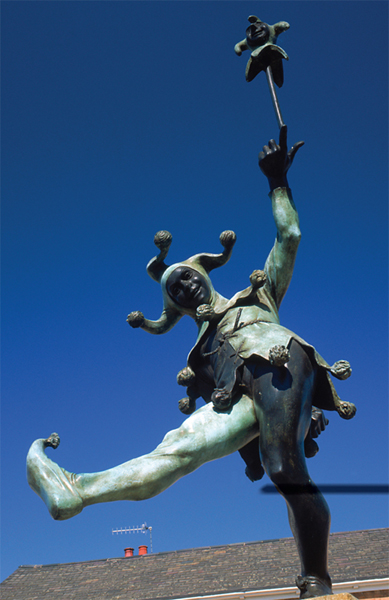
Statue of a fool standing outside the Globe Theatre in London. Fools make an appearance in many of Shakespeares plays, including his comedies Twelfth Night and As You Like It. Francie Manning/Photolibrary/Getty Images
Shakespeares first plays were primarily histories and comedies. His early works in the latter genre are often classed as romantic comedies since their plots are primarily driven by the pursuit of love, as in The Two Gentlemen of Verona, which is considered by some scholars to be his very first completed play. The plays plot revolves around the titular men, Valentine and Proteus, who travel to Milan, where they are educated in courtly behaviour. Complicated relationships develop between the two gentlemen and the characters Sylvia (the Duke of Milans daughter, who is in love with Valentine and eventually pursued by Proteus) and Julia (Proteuss love who secretly poses as his page in Milan). In the fourth act, a device that later became a prominent theme in Shakespearean comedies develops: the characters leave civilization and journey into nature, where the inhibitions of public life are stripped away. In the wild they both knowingly and unknowingly tap into primal behaviours, such as when Proteus attempts to rape Sylvia, the resistant object of his affections. The play ends after Valentine shames Proteus for his actions and thus re-introduces civilized deportment, which results in the four young lovers coupling off in their original pairs and living in mutual happiness.
The Comedy of Errors takes the confused identity plotline of Julia in The Two Gentlemen of Verona and expands it throughout the play. The plot revolves around two sets of identical twins (sons of a merchant, Egeon, and their servants) that get paired off in a storm and raised apart from their respective brothers. The four end up in the same city by happenstance years later, just as Egeon is about to be put to death for his inability to pay a ransom. A series of misidentifications ensue, but the play ends with identities sorted out, the brothers happily reunited, and Egeon pardoned.
Shakespeare tweaked the standard romantic comedy formula with his next comedy, Loves Labours Lost, which tells the story of four young men who decide to focus on the life of the mind to the exclusion of romantic entanglements. Of course, they soon meet four young women who are not only comely but can easily match wits with them. The drama shows the men falling for the women, but just as the happily ever after moment seems at hand, Shakespeare upsets the audiences expectations by introducing an off-stage death that forces the ladies back home. Loves Labours Lost thus ends with the hope of a reunification of the couples in a years time, but no guarantee that the event will in fact happen.
One of Shakespeares most-adapted comedies is The Taming of the Shrew. The story of a difficult daughter who must be married off before her much-courted younger sister may marry has been the plot of countless literary works over the centuries. Shakespeares play revolves around the sisters Katharina, a headstrong woman who is being courted by the clever Petruchio, and Bianca, who is being wooed by three men. While modern adaptations of the play are typically light-hearted and playful, the original has a harsh denouement that sees Petruchio tame Katharina after their marriage by depriving her of food, sleep, and other necessities in an effort to teach her wifely obedience. Biancas plot ends with her wed and taking on her sisters former shrewish nature. Although the principal characters are paired off, the ideal comedic happy ending is never quite reached, and the ending is far from merry.
Font size:
Interval:
Bookmark:
Similar books «The Comedies of William Shakespeare»
Look at similar books to The Comedies of William Shakespeare. We have selected literature similar in name and meaning in the hope of providing readers with more options to find new, interesting, not yet read works.
Discussion, reviews of the book The Comedies of William Shakespeare and just readers' own opinions. Leave your comments, write what you think about the work, its meaning or the main characters. Specify what exactly you liked and what you didn't like, and why you think so.


